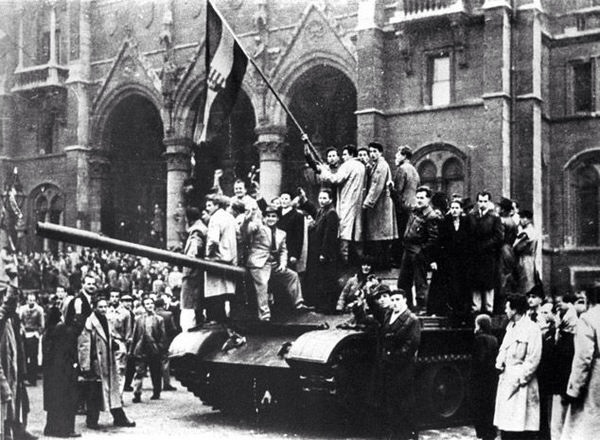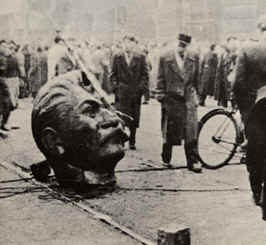The Hungarian Uprising, 1956
- First major uprising by a satellite state to remove Soviet influence
- Hungarian leader Imre Nagy announced he was pulling out of the Warsaw PAct
- Soviets entered the capital, Budapest with tanks and armed forces
- 30,000 Hungarians killed - 200,000 fled the country for the west
- Soviets installed a new leader Janos Kadar who agreed to follow the Soviet line (stayed for 20 years)
- People questioned why US didn't help
- Known as the (EEC) foundation for modern day European Economic Union (EEU)
- Limit effects of excessive nationalism
- Establish a free trade bloc
- Establish a common front aganist Communism
- The Council of Europe - 1949
- The Schuman Plan, 1950 (French and German coal to be produced together)
- European Coal and Steel Community - 1952
- European Defense Community
- Euratom - 1957 (Reduce dependence on Middle Eastern oil)
- Idea brought forth by Krushchev
- Stated USSR wanted to peacefully compete with USA
- USSR encouraged in their peaceful competition with their success in the space race
- 1959 - Sino-Soviet Split
- More aggressive actions begin to be taken under the cover of this idea:
- Pressure to remove troops from Berlin, 1959
- Soviet influence in the Middle East
- Cuban Missile Crisis
Summary
Hungary had the first major uprising by a satellite state to remove communism, therefore the Hungarian leader Imre Nagy wanted to pull out of Warsaw Pact but Stalin had to keep satellite states for support. The Soviets entered Budapest with tanks and armed forces where the Soviets installed a new leader Janos Kadar, who agreed to follow the Soviets.


